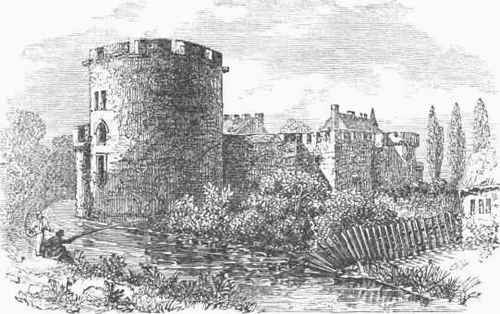Ham
Description
This section is from "The American Cyclopaedia", by George Ripley And Charles A. Dana. Also available from Amazon: The New American Cyclopędia. 16 volumes complete..
Ham
Ham , a town of France, in the department of Somme, G7 m. N. E. of Paris; pop. about 2,400. Its old castle, strengthened by modern works, has become a fortress of some importance, and has long been used as a state prison, for which it is well adapted. The central round tower or donjon is 100 ft. high and 100 ft. wide, and the walls are of masonry 36 ft. thick. It was built in 1470 by the count de St. Pol, who was afterward beheaded by Louis XL Among the numerous eminent persons imprisoned in the castle of Ham have been Joan of Arc, who was kept there a few days before being surrendered to the English, Mirabeau, the ministers of Charles X., Louis Napoleon (1840-46), Cavaignac, Lamoriciere, Changarnier, and others. It was surrendered to the Germans, Nov. 21, 1870.

Fortress of Ham.
Ham #1
Ham , one of the sons of Noah, supposed to have been the youngest. The name signifies in Hebrew "hot" or "burnt," and is regarded as indicative of the regions allotted to his descendants, who, according to Gen. x., occupied the southern parts of the ancient world. The foundation of the empires of Assyria and Egypt is attributed to them, as well as that of Sidon and other Phoenician states. Egypt, in particular, is designated in poetical passages of the Scriptures as the "land of Ham," which answers to the Coptic name of that country, Ke-mi or Khami, the ![]() of Plutarch, and the Climb of the Rosetta inscription, according to Champollion. The Canaanites formed a branch of the Biblical Hamitie race.
of Plutarch, and the Climb of the Rosetta inscription, according to Champollion. The Canaanites formed a branch of the Biblical Hamitie race.
Continue to:


